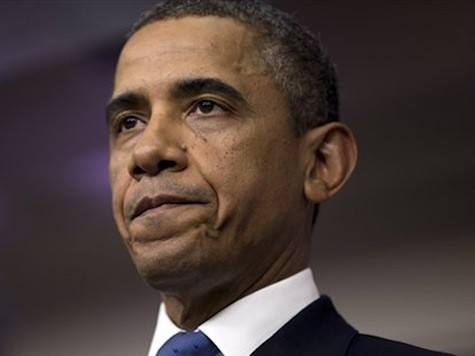Senator Ted Cruz has issued his fourth report on the White House’s bouts of lawlessness; this one entitled The Obama Administration’s Abuse of Power.
It is now understood that when the Administration wants to avoid structural legislative procedures — like debate, consensus building, congressional voting, and accountability — it will instead utilize Executive-Branch means. Senator Cruz is keeping track of the times that the President has bypassed constitutionally required procedures to enact his agenda priorities.
America’s Founders and Framers had good reason to build a structured space for each of the three branches of government. If one branch overpowers another, personal liberty is endangered. When courts legislate, or Congress disregards judicial review, or a president overrides the courts or Congress, layers of protective constitutional safeguards and vital due process are stripped away. No other Administration has shown this one’s reckless tendency to violate the structural order in pursuit of his own goals.
Lest Americans become complacent about this practice of bypassing the people’s elected representatives, it is important to consider that foundational rule of law is at stake. When a White House overrides the Constitutional order in the pursuit of its agenda, it tells citizens that their participation in Constitutional governance does not matter. An Executive Branch that chooses policy winners and losers is in a powerful position to detach the voter — and accountability due that voter — from all that transpires in Washington.
Here are just fives examples of this Administration’s disregard for existing laws, or denial of congressional decisions to fail legislation. These may be considered some of the most egregious for the pervasive impact on the nation’s moral, economic, and security health:
First, deciding that some refugees were unfairly denied entry to the United States due to incidental ties to terrorism, the White House unilaterally eased restrictions. Now, some individuals who provided “limited material support” for terror may be allowed entry as refugees, asylum seekers, and immigrants into the United States.
Second, the U.S. Department of Health and Human Services waived the work requirement based in the 1995 Welfare Reform law. HHS decided that requiring “work activities” for those receiving taxpayer welfare support was not a sufficiently flexible approach and so gave discretion to the states while instructing that the goal was “helping parents successfully prepare for, find, and retain employment.”
Third, the President implemented portions of the DREAM Act although Congress had rejected it, declaring by administrative action that children who arrived in the United States before their sixteenth birthday would be awarded a two-year grant of legal status, including Social Security numbers.
Fourth, the National Relations Labor Board ordered the reversal of Boeing’s decision to relocate a thousand-employee plant from Washington state to South Carolina to protect union employees and their right to strike. The 787 Dreamliner assembly plant was near completion and the employees had been hired.
Fifth, there have been many illegal changes to ObamaCare — from delaying the individual mandates and granting business waivers, to postponing the cancelation of ineligible plans until after the midterm election — but what may be worst in a moral analysis is the decision to allow healthcare subsidies without verification of eligibility.
Some have been conditioned to think that the rule of law is less legitimate than “fairness.” Others may think that election processes do not work well or that the elections do not give proper weight to individual voter voices, but these are not reasons to endow a presidential administration with autocratic powers, or to allow either federal or state chief attorneys to shirk their duty to uphold the law. If Americans must work harder to keep the process and the politicians responsible, that duty falls squarely at the feet of citizens. The solution is not to condone the magisterial conduct of the Chief Executive and sit silently by while congress watches it happen.
Karen Lugo is the Director of the Center for Tenth Amendment Action at the Texas Public Policy Foundation.

COMMENTS
Please let us know if you're having issues with commenting.